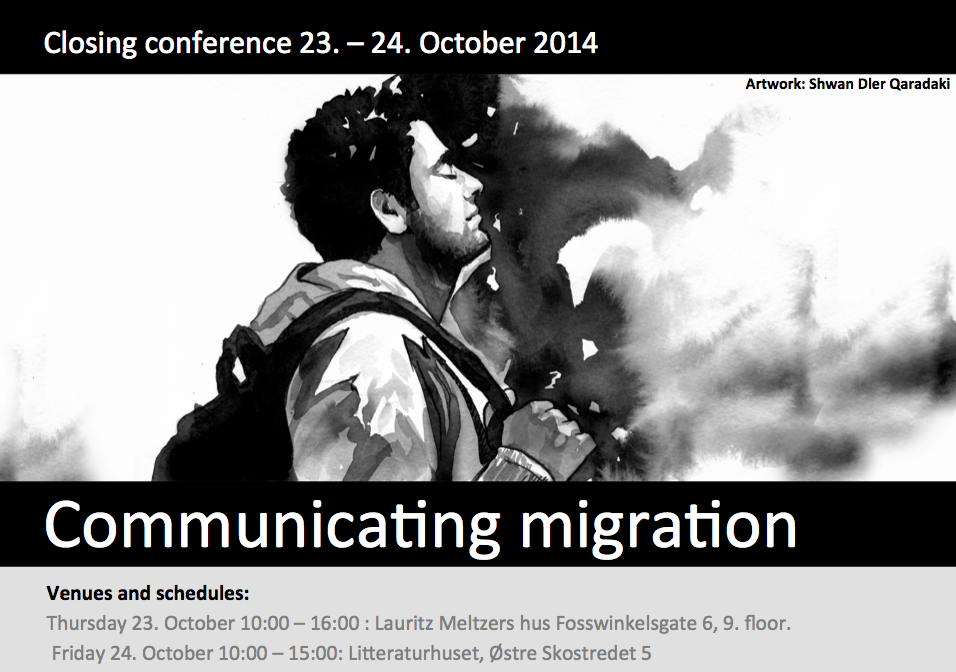Nando Sigona – The politics of refugee voices: representations, narratives and memories
This paper reflects on existing debates surrounding the politics of ‘refugee voices’ by examining the relationship between representations, narratives, and memories of refugees’ experiences. Drawing on literature framed by post-structuralist and critical theories, the chapter problematizes assumptions regarding the existence of ‘a refugee voice’ on the one hand, and the extent to which academic and policy discourses often fail to listen to or to hear such voices on the other. It does so by identifying different configurations of the production and consumption of emic narratives of forced migration and displacement (that is, produced by forced migrants themselves), exploring the factors shaping these narratives and the embedded power relations that permeate them. In particular, the paper explores the practices and spaces which refugees enact and embody to contest the processes which lead to the silencing and marginalization of their narratives and experiences. To do so, the chapter is divided in three main sections which in turn address different yet interlinked manifestations of the ‘refugee voice’.
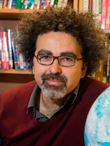 Nando Sigona is a lecturer and Birmingham Fellow at the University of Birmingham. He is also Research Associate at the Centre on Migration, Policy and Society (COMPAS) and Refugee Studies Centre, both at the University of Oxford. His research interests include: statelessness, diasporas and the state; Romani politics and anti-Gypsyism; ‘illegality’ and the everyday experiences of undocumented migrant children and young people; and governance and governmentality of forced migration in the EU.
Nando Sigona is a lecturer and Birmingham Fellow at the University of Birmingham. He is also Research Associate at the Centre on Migration, Policy and Society (COMPAS) and Refugee Studies Centre, both at the University of Oxford. His research interests include: statelessness, diasporas and the state; Romani politics and anti-Gypsyism; ‘illegality’ and the everyday experiences of undocumented migrant children and young people; and governance and governmentality of forced migration in the EU.
His work has appeared in a range of international academic journals, including Sociology, Social Anthropology, Journal of Ethnic and Migration Studies, Identities and Ethnic and Racial Studies. He is one of the editors of the Oxford Handbook on Refugee and Forced Migration Studies (Oxford University Press 2014), Associate Editor of Migration Studies, a refereed journal by Oxford University Press, and co-author of Sans Papiers. The social and economic lives of undocumented migrants (Pluto Press, 2014).
IMER Seminar:
Elaine Chase and Jenny Allsopp: The ‘tactics’ of time and status: Young people subject to immigration control making the transition to ‘adulthood’ in the UK
Young people who arrive in the UK from outside Europe without a parent or legal guardian are institutionally categorised according to a range of possible legal statuses and usually afforded time-limited Leave to Remain in the UK. These categorisations are associated with specific welfare entitlements which tend to diminish over time and become particularly uncertain as young people transition into ‘adulthood’. Situated within a broader research programme examining the link between migration, ‘wellbeing’ and ‘futures’, this paper examines the multiple transitions imposed on young people subject to immigration control as they approach the age of 18 and beyond, (from child to ‘adult’, from being accorded a temporary residence permit to more permanent leave to remain or from legality to ‘illegality’) and the implications for their access to various dimensions of welfare provision. The paper shows how different components of the ‘state’ have time limitations at their disposal to control access to welfare and state support according to chronological age. From young people’s perspectives, such ‘tactics’ fundamentally control their trajectories and future prospects unless they can formulate strategies of their own to counter such tactics.
Read more about Elaine Chase here
Read more about Jenny Allsopp here
Rolf Halse: Muslim characters in the television serial 24
The presentation will centre on my PhD thesis – a thesis that I according to plans will defend 7 November this year at the University of Bergen. The thesis presents an examination of the US television serial 24’s representation of Muslim characters, and it explores to what extent the perception of these characters can be determined by the cultural and ethnic belonging of the audience. The main reason for choosing to study 24 exclusively is that after 9/11 the serial played a central role in the public debate about whether Muslims are being stereotyped in US television entertainment. Hence, I will discuss whether the critics of 24 have a valid point with regards to the show’s portrayal of negative stereotypes. I will also assess to what extent the serial’s effort to introduce Muslim counter-stereotypes proved to be an adequate response to the criticism.
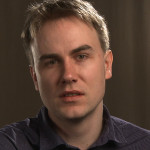 Rolf Halse is a Ph.D. Candidate at the Department of Information Science and Media Studies, at the University of Bergen. His research interests lie in popular culture, media audiences and the politics of representation. Halse has published his work in renowned media studies journals such as Critical Studies in Television: the International Journal of TV Studies, Journal of Arab and Muslim Media Research and Nordicom Review.
Rolf Halse is a Ph.D. Candidate at the Department of Information Science and Media Studies, at the University of Bergen. His research interests lie in popular culture, media audiences and the politics of representation. Halse has published his work in renowned media studies journals such as Critical Studies in Television: the International Journal of TV Studies, Journal of Arab and Muslim Media Research and Nordicom Review.
Contact: Rolf Halse, Department of Information Science and Media Studies, University of Bergen, Box 7802, 5020, Bergen, Norway. E-mail: rolfhalse@infomedia.uib.no
The conference is open: No registration
The IMER seminar series for 2014 have covered how migration and ethnic relations are communicated in every-day encounters, in mass and social media, in art, in politics and in research and teaching at the universities. Has the way people talk about migration and migrants in different social contexts changed over time, and in which ways has it changed?
How does migration theory and research relate to other topics and theories in the social sciences, and how do results from migration research inform public debate and policy development? What are the challenges we encounter in communicating migration?
Thursday October 23. 2014
Lauritz Meltzers hus Fosswinkelsgate 6, 9. floor. (in English)
10.00 : Teaching race, Racism and Ethnicity: Education, politics and practice John Solomos
11.00: Studying race and discrimination in a colorblind society: the case of France Patrick Simon
12.00-13.00 Lunch
13.00: Migration and Integration in Norwegian Sociology Mette Andersson
13.30: Distinction Home and Abroad in Migration Research Tor Aase
14.00: Migration and Social Theory Randi Gressgård
14.30: Migration in Literature Studies Lene Johannessen
15.00:Migration in Political Science Hakan G. Sicakkan
15.30: Concluding Discussion
Friday October 24. 2014
Literature house Bergen, Østre skostredet 5, 2nd floor (in Norwegian)
10:00 – 10:15 Velkommen IMER leader Synnøve Bendixsen
10:15 – 10:40 IMDI: Fakta om innvandring til Norge v/ regionsdirektør Bente Blytt
10:45 – 12:00 Norsk-svensk innvandringskrangel– hva handlet den om, og hvor står debatten i dag? v/ Tidl. Statssekretær Ketil Rakes (N) og forfatter Henrik Arnstad (S)
12:00 – 13:00 Pause
13:00 – Å kommunisere migrasjon gjennom film og kunst. Diskusjon med kunstnerne Thomas Østbye og Shwan Dler Qaradaki sammen med antropolog Marry-Anne Karlsen.
14.00 Utstilling og film: Imaging Immanuel (2011. Regissør: Thomas Østbye. 52 min)
IMER Bergen, International Migration and Ethnic Relations, is a multidisciplinary research unit at Uni Research Rokkansenteret and the University of Bergen. The aim of IMER Bergen is to contribute to research-based knowledge about international migration, not least related to European countries, including the consequences of immigration and emigration for societies. IMER Bergen started as a unit at the University of Bergen in 1996, and has since then been an important contributor, both nationally and internationally, to the migration research field. IMER is a prioritized research area at the Faculty of Social Sciences, University of Bergen.
IMER online: http://imer.w.uib.no
Visit IMER on Facebook
For contact, please send email to imer@uni.no
Additional information:
A short introduction to the debate on Friday:
http://www.vg.no/nyheter/meninger/sverige/kronikk-folkhemspopulismen/a/23297613/
Om diskusjonene om migrasjon i kunst og film:
IMER Bergen har som en del av Communicating Migration konferansen invitert to kunstnere til å snakke om sitt arbeid. Begge kunstnerne jobber med migrasjon som tema og i samtalen vil vi ta opp spørsmål som: Hvordan kan migrasjon kommuniseres gjennom kunsten? Hva er forholdet mellom politikk og kunst? Er det likheter mellom kunst og samfunnsfagene? Hvilke dilemmaer star man ovenfor når man representerer andre mennesker gjennom kunst, og hvordan kan man løse slike dilemma. Kan kunsten gi mennesker en stemme?
I foredraget vil antropolog Mary-Anne Karlsen snakke med kunstnerne Thomas Østbye og Shwan Dler Qaradaki.
Thomas Østby, kjent for å ha laget den prisbelønte filmen Imaging Emanuel som vi vises etter samtalen. Østby har også en rekke andre arbeider som har fått anerkjennelse både nasjonalt og internasjonalt. Les mer: http://www.plymserafin.com
Shwan Dler Qaradaki levde i mange som papirløs i Norge selv. Dette har preget hans kunstneriske uttrykk der han er opptatt av tematikk som flukt, konflikt, identitet, tilhørighet og mangfold. Les mer: http://dlerqaradaki.tumblr.com/
Film: Imaging Emanuel
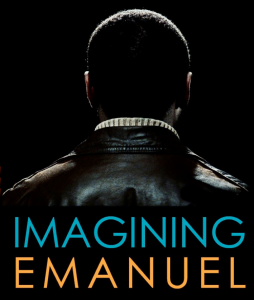 Emanuel har ukjent identitet og oppholder seg illegalt i Norge. Han kom til landet i 2003, men ønsker ikke å leve som illegal, og har forsøkt å få returnere til sitt hjemland uten hell. Han hevder å komme fra Liberia, men norske myndigheter hevder derimot at Emanuel kommer fra Ghana, og har tvangssendt ham dit to ganger. Hver gang har Ghana returnert ham til Norge med beskjed om at han ikke er Ghaneser. Emanuel er dermed dømt til et liv i limbo, uten oppholdstillatelse og rettigheter, men også uten utreisemulighet. Thomas Østbye tilnærmer seg Emanuel ved hjelp av en rekke forskjellige dokumentarsjangere, og de forskjellige avbildningene gir oss ulike inntrykk av den samme mannen. Hvem er Emanuel? Hva er identitet? Hvordan kan identitet avbildes? Hvem besitter sannheten?
Emanuel har ukjent identitet og oppholder seg illegalt i Norge. Han kom til landet i 2003, men ønsker ikke å leve som illegal, og har forsøkt å få returnere til sitt hjemland uten hell. Han hevder å komme fra Liberia, men norske myndigheter hevder derimot at Emanuel kommer fra Ghana, og har tvangssendt ham dit to ganger. Hver gang har Ghana returnert ham til Norge med beskjed om at han ikke er Ghaneser. Emanuel er dermed dømt til et liv i limbo, uten oppholdstillatelse og rettigheter, men også uten utreisemulighet. Thomas Østbye tilnærmer seg Emanuel ved hjelp av en rekke forskjellige dokumentarsjangere, og de forskjellige avbildningene gir oss ulike inntrykk av den samme mannen. Hvem er Emanuel? Hva er identitet? Hvordan kan identitet avbildes? Hvem besitter sannheten?
Redigert av Christine Jacobsen, Synnøve Bendixsen, Karl Harald Søvig
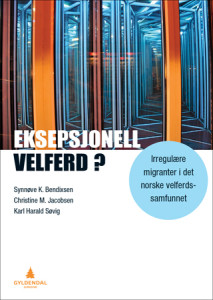 Irregulære immigranter har på noen områder full tilgang til velferdsytelser, men på mange områder er tilgangen svært begrenset enten i form av rettsregler eller andre barrierer. Denne antologien undersøker forholdet mellom rettslig rammeverk, institusjonell praksis og hvordan irregulære migranter selv erfarer sin situasjon.
Irregulære immigranter har på noen områder full tilgang til velferdsytelser, men på mange områder er tilgangen svært begrenset enten i form av rettsregler eller andre barrierer. Denne antologien undersøker forholdet mellom rettslig rammeverk, institusjonell praksis og hvordan irregulære migranter selv erfarer sin situasjon. Med en unik kombinasjon av juridisk og antropologisk blikk, går boken regelverket nærmere i sømmene, drøfter gatebyråkraters utfordringer og hverdagslivet til irregulære migranter og deres barn.
Hvilke regelverk får konsekvenser for irregulære migranters levevilkår? Hvordan blir dette regelverket forstått og etterfulgt av gatebyråkrater? Og hvordan blir hverdagslivet til irregulære migranter og deres barn påvirket av regelverket og dets fortolkning?
Denne boken er aktuell for velferdsprofesjoner som møter irregulære migranter som en del av sin yrkesutøvelse. Både leger, sykepleiere, helsesekretærer, lærere, helsesøstre, skolerådgivere, sosialarbeidere, sosionomer og barnevernspedagoger vil ha god nytte av Eksepsjonell velferd? Irregulære migranter i det norske velferdssamfunnet. Boken retter seg også mot frivillige organisasjoner som jobber med ulike aspekter ved migranters situasjon i Norge og andre som er engasjert i temaet.
Susanne Wessendorf: Pioneer migrants in a super-diverse context
Urban areas in Europe and beyond have seen significant changes in patterns of immigration, leading to profound diversification. This diversification is characterized by the multiplication of people of different national origins, but also differentiations regarding migration histories, religions, educational backgrounds, legal statuses and socio-economic backgrounds. This ‘diversification of diversity’ is now commonly described as ‘super-diversity’. Despite an increasing number of studies looking at how people live together in such super-diverse contexts, little is known about new patterns of immigration into such contexts. What are the newly emerging countries of origin which add to the diversification of already super-diverse areas? Where do recent migrants from unusual source countries, who cannot draw on already existing migrant or ethnic ‘communities’, find support? And what kinds of social networks do they form? This paper discusses pathways of settlement among recently arrived migrants from non-traditional countries of origin in the London Borough of Hackney. Drawing on earlier migration literature and the notion of ‘pioneer migration’, the paper addresses the challenges of analysing increasingly fragmented migration stories and pathways of settlement in super-diverse contexts.
Thomas Hylland Eriksen: The tension between superdiversity and cultural reproduction
From a bird’s eye perspective, Alna borough in eastern Oslo definitely looks superdiverse. Scores of languages are spoken in its population of 40,000, and its inhabitants come from about as many countries. Yet at the local level, social and cultural reproduction takes place to a great extent at the ethnic or community level. As one of our informants says, ‘I sometimes feel as though I am in Pakistan’. Had it not been for the strong presence of the Norwegian state, the suburb would have resembled the plural societies described in the mid-20th century by Furnivall and Smith, where ethnic groups, like pearls on a necklace, lead parallel lives but meet in the marketplace. How comprehensive is the influence of the state; in what ways does diversity in public affect the private sphere, and what are the main elements in the cultural reproduction of minority groups?
The populist radical right has emerged as the spearhead of a larger renationalization process directed against positions of global and European integration. Based on anthropological fieldwork in the postindustrial towns of Doncaster (South Yorkshire, UK) and the Hungarian town of Ózd in 2015, the paper examines the various historical, material and socio-economic factors in the rise of Ukip (United Kindom Independence Party) and the extreme right-wing Jobbik (Movement for a Better Future).
In their politics of fear, minorities and migrants are marked as posing cultural-religious threats to communal harmony and the nation-state. Through participant observation and interviews with Ukip and Jobbik politicians and supporters, the paper examines how knowledge about ‘threatening others’ is produced, circulated and contested.
 Dr. Cathrine Thorleifsson holds a PhD in Social Anthropology from the London School of Economics and Political Science (2012). Her chief theoretical interests lie in anthropological approaches to the study of nationalism, migration, borders and xenophobia.
Dr. Cathrine Thorleifsson holds a PhD in Social Anthropology from the London School of Economics and Political Science (2012). Her chief theoretical interests lie in anthropological approaches to the study of nationalism, migration, borders and xenophobia.
Welcome! A light lunch will be served.
About the Seminar series:
Migration responses
Debating the current refugee crisis in Europe
The IMER Bergen Seminar series for the spring of 2016 will discuss a wide range of responses in the wake of the current migration crisis. How can the theoretical and empirical research currently being conducted on migration, ethnic relations, peace and conflict contribute to understanding the multi-faceted landscape of politics, boundaries and everyday lives of the refugee crisis?
Illustration: Wallpapercave
Hip hop music and the forging of civic bonds among minority youth in Norway
A vast body of research documents that media coverage of ethnic minorities in Norway is systematically imbalanced and problem oriented, which in turn engenders a sense of exclusion. At the same time, hip hop music and artists are today regular fixtures in various media formats, and a genre that comprises a number of prominent performers of multi-cultural background.
Set against the backdrop of the exclusionary effects of news media representations, this interview study of a group of minority youth makes evident that mass mediated hip hop music is for them taken to entail public representation of minority experiences and sensibilities that engender a sense of democratic inclusion.
By combining recognition theory and reception theory, Nærland shows how hip hop-related media coverage is experienced to involve a positive affirmation of minority identity that also contributes to the formation of civic identity and affinities. The study argues that musical media events constitute ‘moments of recognition’ where dynamics of recognition is intensified.
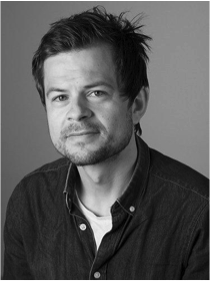 Nærland further argues that recognition theory makes up a valuable supplementary framework for our theoretical understanding of the civic dimensions of media reception, and the role of popular music therein.
Nærland further argues that recognition theory makes up a valuable supplementary framework for our theoretical understanding of the civic dimensions of media reception, and the role of popular music therein.
Welcome! A light lunch will be served.
About the Seminar series:
Migration responses
Debating the current refugee crisis in Europe
The IMER Bergen Seminar series for the spring of 2016 will discuss a wide range of responses in the wake of the current migration crisis. How can the theoretical and empirical research currently being conducted on migration, ethnic relations, peace and conflict contribute to understanding the multi-faceted landscape of politics, boundaries and everyday lives of the refugee crisis?
Kicking off a new semester with IMER lunch seminars, our first seminar this year is building on exciting fieldwork from Bergen. Hilde Danielsen from Uni Research Rokkansenteret is giving a presentation about the symbolic value of birthday parties in contemporary Norway.
Danielsen argues that birthday celebrations have become more than a private family matter, and are increasingly seen as a socially charged question in Norwegian society. Many parents with and without migration background, as well as teachers and other actors, claim that birthday parties have the potential to create social inclusion. They are especially concerned that children with migrant background should celebrate and attend. Celebrating birthdays has seemingly become one of the litmus tests of whether an immigrant individual or an immigrant group is integrated into Norwegian society.
Note the place: Lauritz Meltzers hus (SV-bygget), room 212.
As usual, a light lunch will be served. All are welcome!
Non-governmental organizations (NGOs) work closely with refugees by providing services and assistance. However, refugees might also be subjected to misconduct by NGOs. In such a scenario, how can NGOs be held accountable for wrongful acts?
For this IMER lunch seminar, Marianne Nerland from the Faculty of Law at UiB will present preliminary findings from her PhD project which explores recourses available to refugees seeking justice against NGOs. By drawing on interviews conducted with refugees as well as aid workers in Kakuma refugee camp in Kenya, Marianne will argue that there are serious legal obstacles that refugees face when wanting to file complaints against NGOs. This case highlights the need for an enhanced structure for NGO accountability in refugee camps.
A light lunch will be served! All welcome!
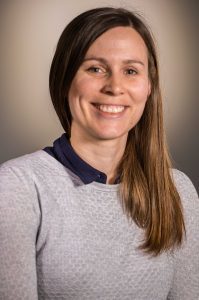 Marianne Nerland is a PhD candidate at the Faculty of Law, UiB
Marianne Nerland is a PhD candidate at the Faculty of Law, UiB

